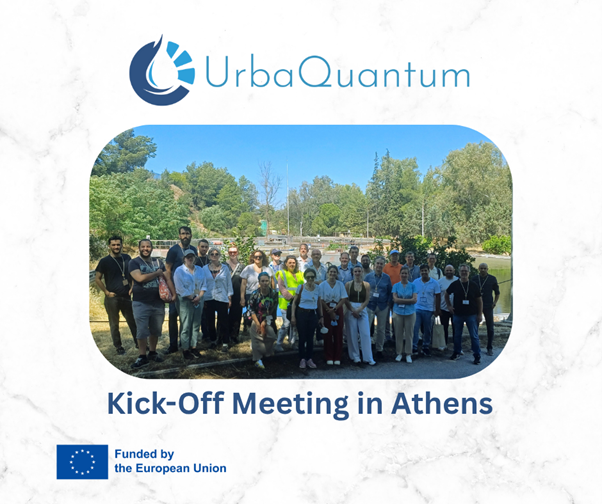The Centre for Water Systems (CWS) at the University of Exeter has joined a new initiative UrbaQuantum (A novel, integrated approach to urban water quality monitoring, management and valorisation) to advance scientific research for reducing water pollutions. UrbaQuantum, funded by the European Commission under the Horizon Europe framework and coordinated by Cyprus Research and Innovation Centre Ltd (CyRIC), unites multidisciplinary experts from academics, businesses, water utilities, and public authorities across seven European countries to address the shared challenges in modern cities: fragmented urban water governance in the face of climate change, pollution, urbanisation, and infrastructure degradation.
During its official launch in Athens on June 24-25 2025, UrbaQuantum unveiled its vision of Integrated Urban Water Management (IUWM). The project will seamlessly integrate high-frequency sensors with advanced AI-driven models directly within existing institutional workflows. This powerful fusion aims to move beyond mere risk detection towards intelligent, evidence-based responses and proactive water management.
CWS plays a critical role in UrbaQuantum, leading the development of models and toolkits that connect sensor data with analyses of water movements and quality in urban environment. The insight will support the development of effective source control measures and strategies for safe water reuse.
Prof Albert Chen at the CWS highlights the ambition of the project: “UrbaQuantum will bridge the gap between real-world observations and practical applications, ultimately enhancing urban water management for a cleaner and safer environment.”
Profs Albert Chen, Slobodan Djordjevic, Dragan Savic and Dr Lydia Vamvakeridou-Lyroudia at the CWS are also collaborating with South West Water and Westcountry Rivers Trust in the UK Pilot of UrbaQuantum. The Pilot will utilise real-time monitoring data to enhance the predictions of combined sewer overflows and associated contaminant propagation. The outcome will enable more intelligent operation and control of infrastructure and assets to actively prevent pollutions.

